
China
10:59, 15-Dec-2018
Charting a path through turmoil: A year of China's globalization commitment
Updated
09:58, 18-Dec-2018
By Wang Xiaonan
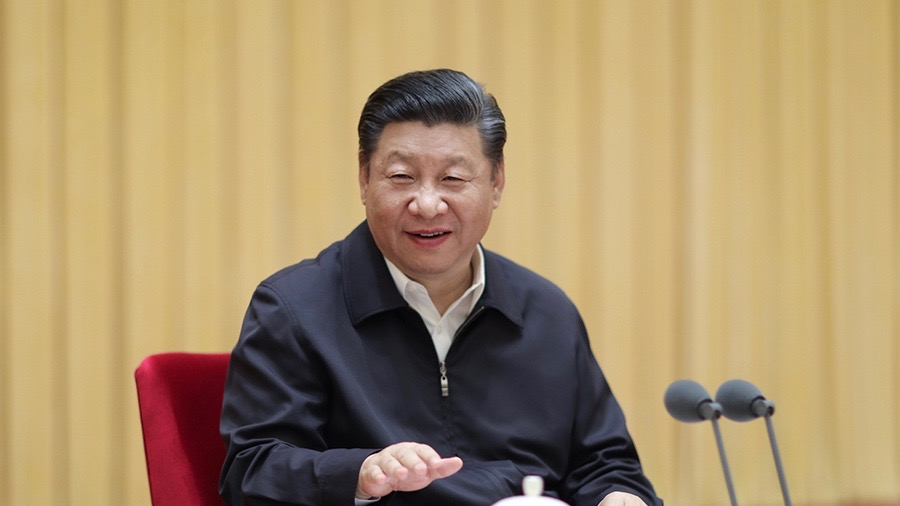
2018 has been an unusual year, featuring unprecedented uncertainty in decades. The world is seeing a mighty anti-globalization force, experiencing a resurgence of populism, and startled at the confrontation between the world's two largest economies, while turmoil continues unabated in some regions and others have yet to recover from natural disasters and man-made chaos. The international geo-economic order that has been refined over the past seven decades has been put at jeopardy.
"The world is experiencing important changes that have not been seen for the past 100 years," said Chinese President Xi Jinping during a visit to Spain last month. Over the past year, China has been striving to make order out of old conundrums and new challenges by blazing a diplomatic course for a new era.
China hosted four hefty diplomatic events this year, opening a new chapter of engagement with the rest of the world. The country has demonstrated strength and composure in a world of confusion.
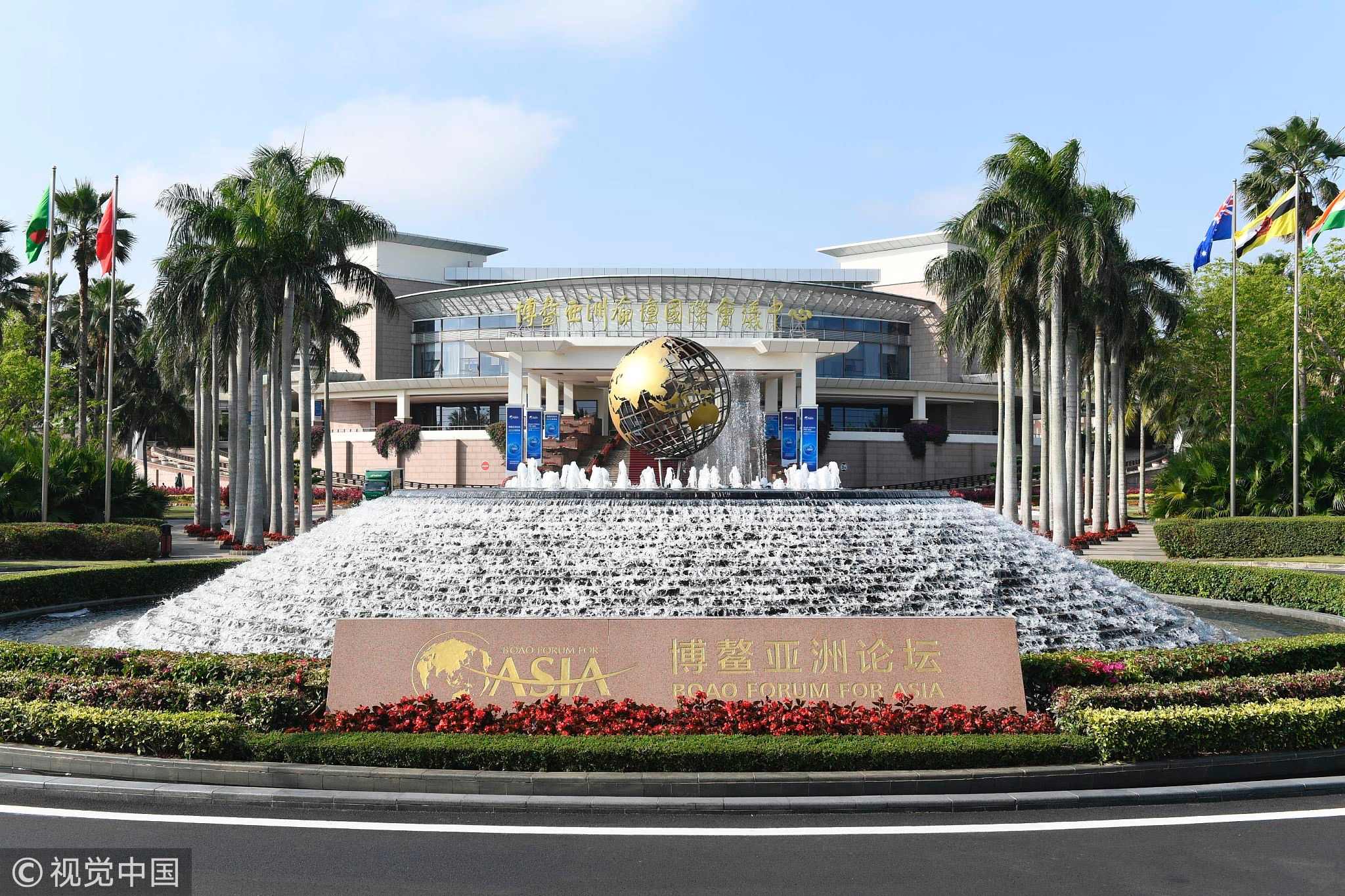
The International Convention Center of the Boao Forum for Asia, in south China's Hainan Province, April 10, 2018. /VCG Photo
The International Convention Center of the Boao Forum for Asia, in south China's Hainan Province, April 10, 2018. /VCG Photo
A renewed commitment to opening up
The 17th Boao Forum for Asia (BFA) with the theme of "An Open and Innovative Asia for a World of Greater Prosperity" opened in south China's Hainan Province in April, as a rallying cry for reform and opening up. President Xi said, "China's door of opening up will not be closed and will only open up even wider." A series of related measures including giving foreign businesses greater access, strengthening intellectual property rights and expanding imports were announced at the Asian Davos.
The BFA is a mirror of Asia's changing role in the world economy, evolving from a marginalized community to a helping hand and now to a growth leader over the past nearly 20 years. In 2017, Asia delivered around 60 percent of the world's economic growth, and China itself contributed one third to the overall momentum. But the subprime meltdown, the European debt crisis and the U.S. tariff provocation have left the world fragile to trade protectionism.
The world economy lacks development impetus and direction while global governance is falling apart. China's pledge to further open up and defend globalization not only helps spur regional growth but preludes a community featuring an integrated institutional arrangement to lead global growth.
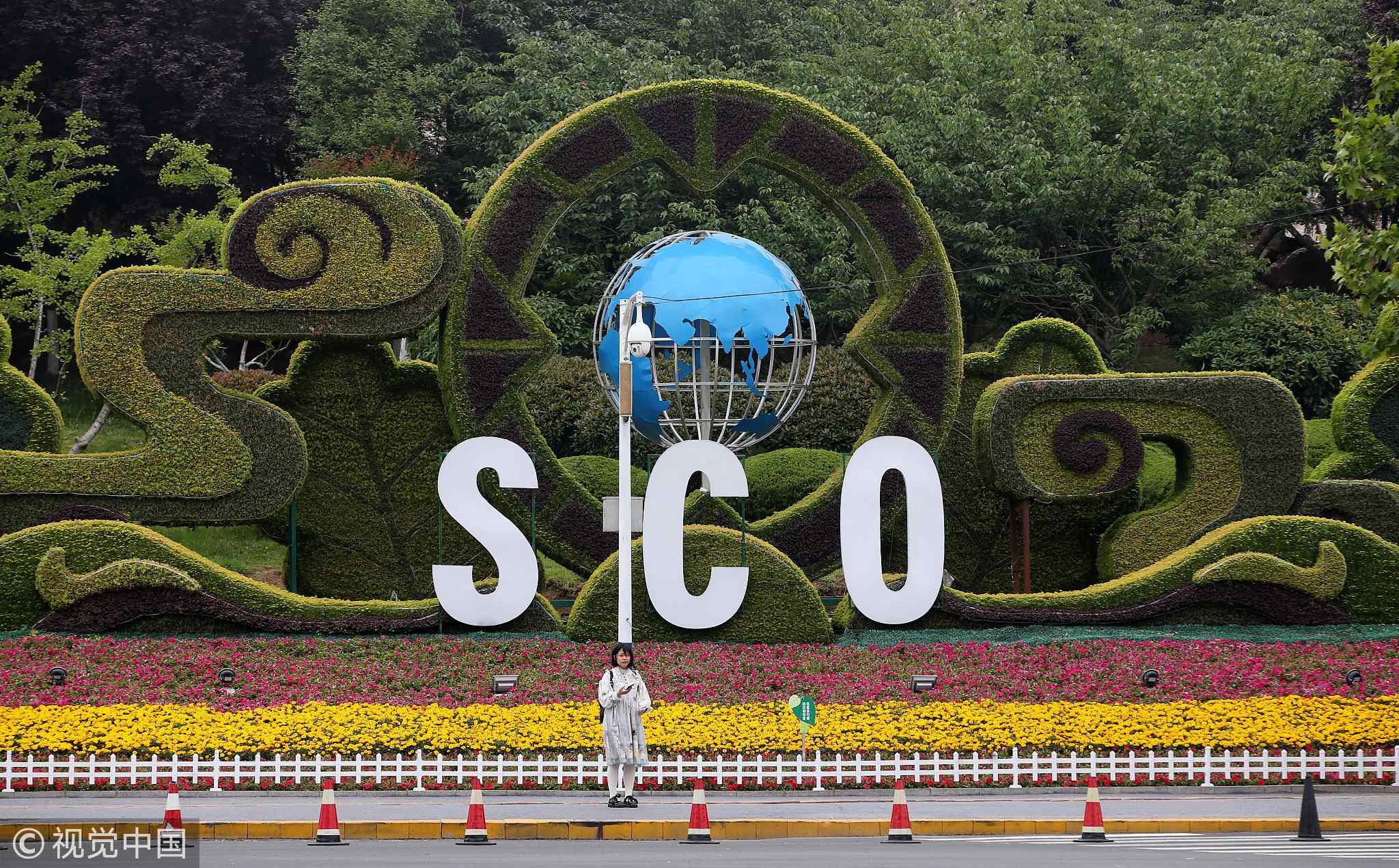
An "SCO" sign in the city of Qingdao, east China's Shandong Province, May 28, 2018. /VCG Photo
An "SCO" sign in the city of Qingdao, east China's Shandong Province, May 28, 2018. /VCG Photo
The first "Eurasian Eight" summit
"How delightful it is to have friends come from afar," Chinese philosopher Confucius wrote in his Analects over 2,500 years ago. His home province of Shandong in east China received guests from distant quarters for the 18th summit of the Shanghai Cooperation Organization (SCO) in June.
In a span of 17 years, the Shanghai Five has evolved incredibly fast from a security institution to become the largest trans-regional consortium on the global map with the inclusion of India and Pakistan. How the organization brought two nations perennially at odds with each other over territorial issues could boil down to the Shanghai Spirit – the set of values underpinning the SCO which are founded on mutual trust, mutual benefit, equality, consultation, respect for cultural diversity and the pursuit of common development.
It's fully exemplified in the philosophy of contemporary Chinese diplomacy, which can be traced back to around 500 BC – the age when Confucius was the talk of the town. Traveling among dozens of warring kingdoms after the fall of the Zhou Dynasty, he sought the ideal of harmony in state governance.
With a harmony-oriented foreign policy, China has reclaimed the cultural heritage of Confucianism. The SCO needs to reconfigure its decision-making architecture since an enlarged membership means more differences over security, economic and political issues. And during this process, the wise governance of Confucius will be more relevant than ever.
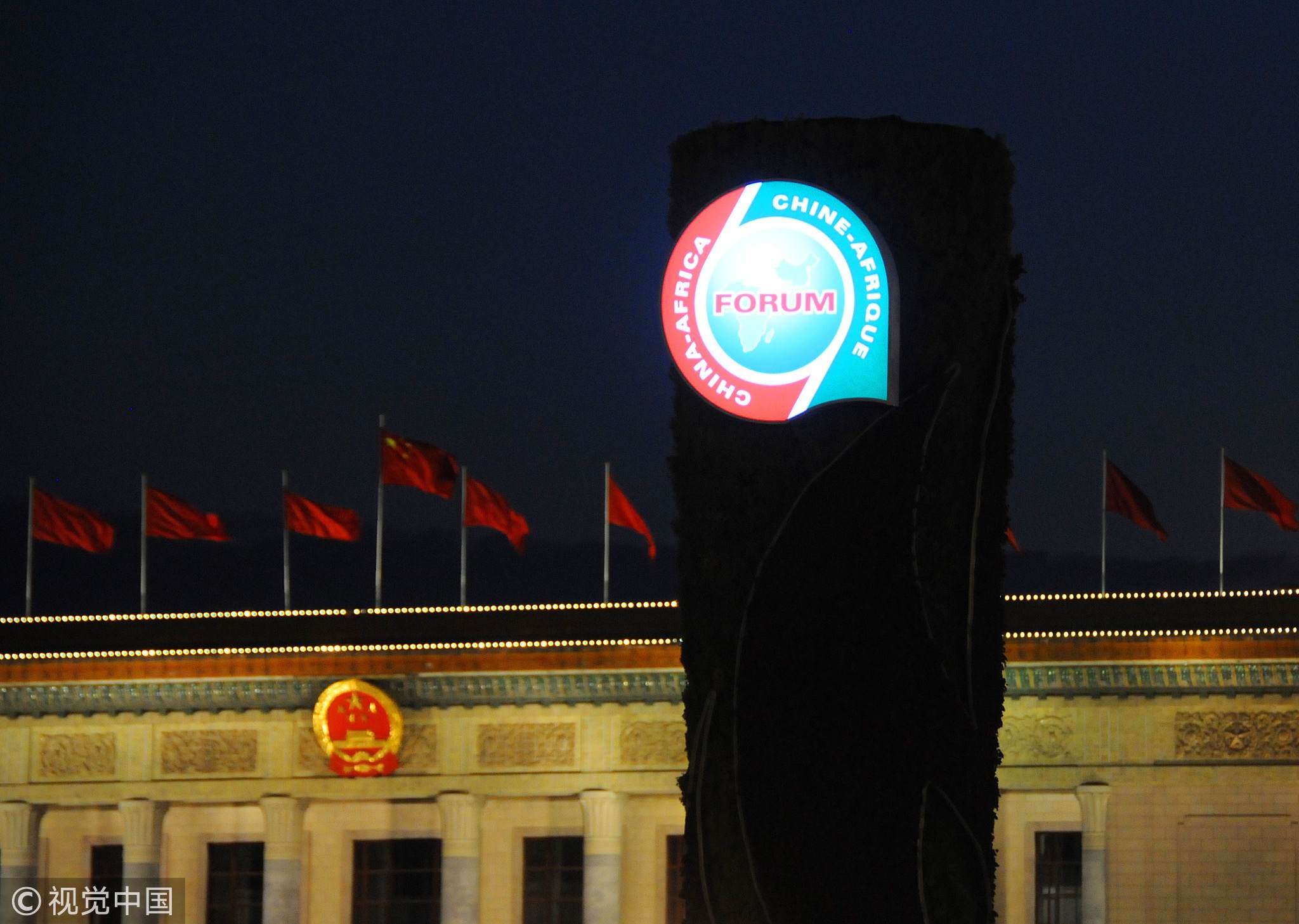
A "China-Africa Forum" sign at the Tian'anmen Square in Beijing, August 31, 2018. /VCG Photo
A "China-Africa Forum" sign at the Tian'anmen Square in Beijing, August 31, 2018. /VCG Photo
Rosy South-South cooperation
Chinese Foreign Minister Wang Yi branded 2018 as a year of South-South cooperation in China's diplomacy. It can largely be attributed to the seventh Summit of the Forum on China-Africa Cooperation in September, when Beijing welcomed 40 presidents, 10 prime ministers, a vice-president and the chairman of the African Union Commission. President Xi hosted around 70 multilateral and bilateral events during the summit, which marked the largest and highest-level diplomatic event China had ever hosted.
Numerous hands shaken and pacts clinched helped shape the next three years of Sino-African ties. China pledged 60 billion U.S. dollars in assistance, which will mainly be used to boost cooperation on agriculture and green development. Trade, infrastructure, industrialization, health and people-to-people exchanges also featured prominently.
In his opening speech, Xi announced a "five-no" approach to China's Africa policy, consisting of no interference in the developmental paths of individual countries, no interference in their internal affairs, no imposition of China's will, no attachment of political strings regarding assistance, and no seeking of selfish political gains in investment and financing cooperation.
The summit further demonstrated the reciprocal model of China-Africa relations, and its investment in the continent is a development boon instead of a debt trap promulgated by Western narratives. Look closer and Western critics will find a more complicated story which, however, does not contain a tint of "neo-colonialism."
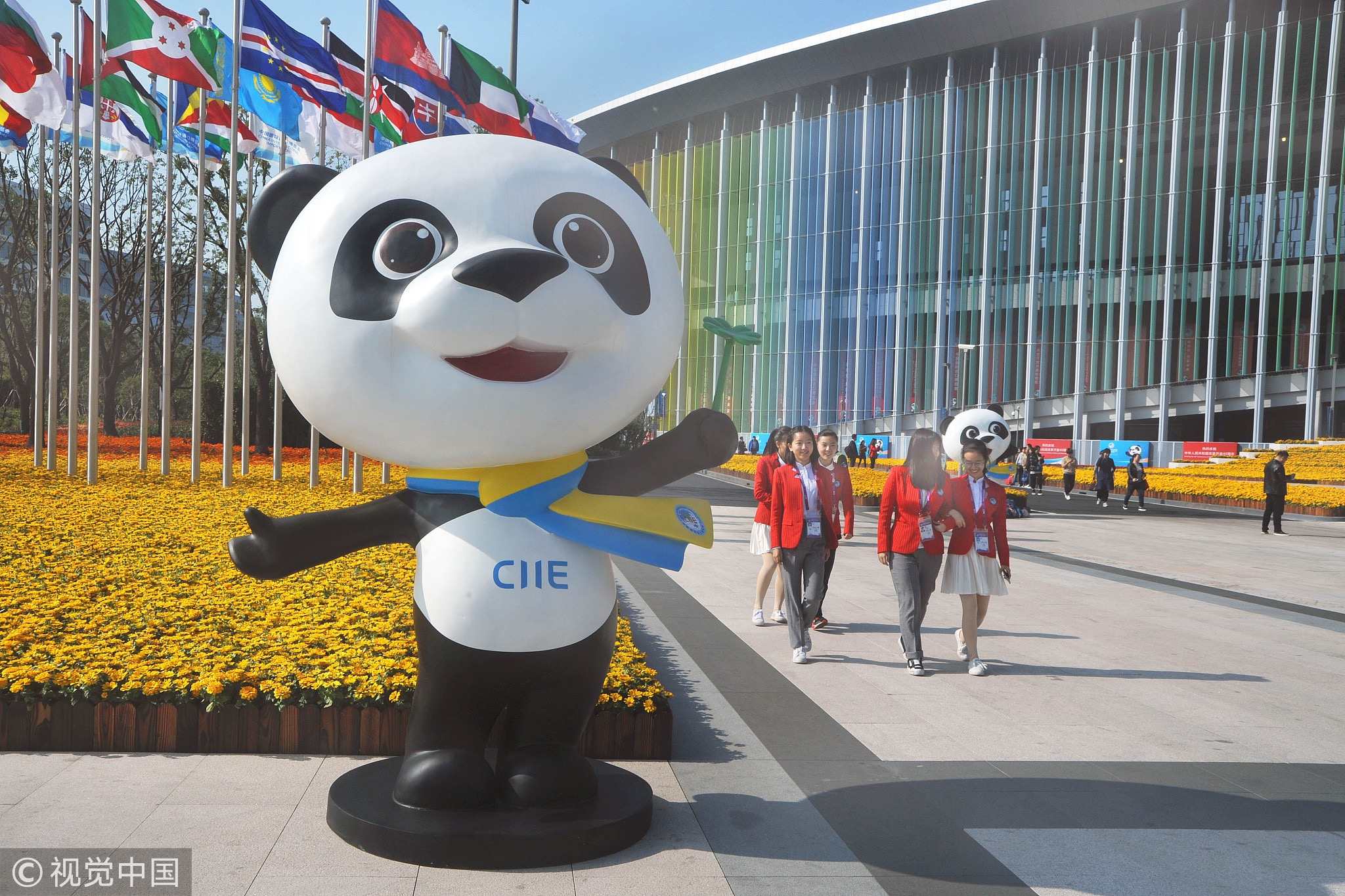
Jinbao, the mascot of the China International Import Expo, in front of the National Exhibition and Convention Center in Shanghai, November 10, 2018. /VCG Photo
Jinbao, the mascot of the China International Import Expo, in front of the National Exhibition and Convention Center in Shanghai, November 10, 2018. /VCG Photo
China's new public good
In early November, the metropolis of Shanghai witnessed the pomp of the China International Import Expo, the first of its kind in the world. Over 400,000 purchasers from 172 countries, regions and international organizations and 3,600 foreign companies gathered at the six-day long fair, sealing deals worth a total of 57.8 billion U.S. dollars.
The impressive sum is mainly allocated in the smart manufacturing industry, food and agriculture and the automotive sector, powering the global development transition to a digital economy.
"China will continue to significantly expand market access, strengthen IPR protection, and do more to increase imports," Xi said at the event. The latest paragon of China in championing globalization and free trade, the expo also served to complement the Belt and Road Initiative. Opening up the market and connecting the world constitute key ingredients of an open global economy, part of a move to build a community with a shared future for mankind.
In an era of mounting uncertainty as trade protectionism has put the world market on tenterhooks, the expo undoubtedly injected confidence into enterprises. But whether it will become an enduring public good to reenergize multilateralism depends on the willingness of major economic powers to continue on the path of openness and commitment to negotiation.
(Cover photo: Chinese President Xi Jinping, also general secretary of the Central Committee of the Communist Party of China and chairman of the Central Military Commission, delivers an address at the Central Conference on Work Relating to Foreign Affairs held in Beijing, June 22-23, 2018. /Xinhua Photo)

SITEMAP
Copyright © 2018 CGTN. Beijing ICP prepared NO.16065310-3
Copyright © 2018 CGTN. Beijing ICP prepared NO.16065310-3